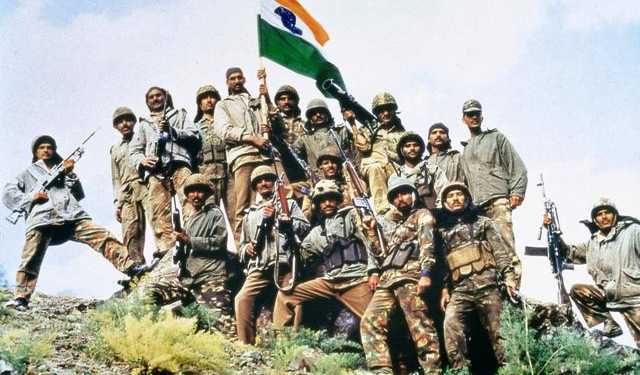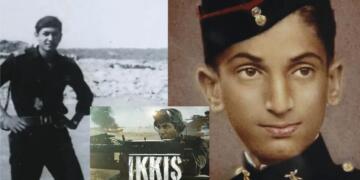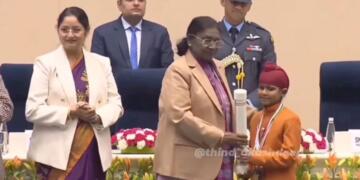In high school, most of my idea of war was from the history books and cinema. And then of course there were townsfolk who had seen both the war with China and the one with Pakistan pretty closely. My family was one of them. They would talk about the war time sirens, the blackened window panes, the black outs and the sense of betrayal over Nehru’s speech of 1962. (There’s sense of hurt among the senior generation of NE India, the resident’s felt he wasn’t even concerned about Tezpur). The heroes were romanticized and accounts of how refugees from Bangladesh battled against odds were oft narrated tales. Somehow my young mind had made a picture of war. A picture in which protecting the motherland was of utmost duty; even if it was at the cost of your own life. I wasn’t very good in even school sports, but would tell my friends that if there was a war I would enlist with the army (things movies do to overtly imaginative minds).
Since the Eastern Air Command of the Indian Air Force is headquartered in Shillong, there were always these impeccably dressed gentlemen at the exhibitions and fairs. I and my friends had this deep sense of respect for men in uniform, because we had seen how the CRPF had averted major riots in Shillong and had rushed to help as at all times. We never heard them say a no to any request.
But the Kargil war changed this admiration for men in uniform to something far deeper. I don’t know what I will call it today, but all those years back it was this war that had made me write my first letter of love. Just out of a girl’s school and enrolled into another conservative girl school for my pre university, life was boring.
There was cricket of course and the World Cup coming. And then that one event changed everything. I was studying geography and had a fair idea of what the area around POK and Kargil and Drass was; however I had not much information about how important the region was for us.
The evening news had coming with shocking information of our AIF plane being shot down in enemy territory. One of the officers was killed and another was captured. The morning newspaper came with more details, the personal lives of the officers and the affected family. As I read the paper, I wondered about why we writers romanticize wars. What about the family that had lost a son, a husband, a father? All that for people who would usurp grants meant for the widows of war! All that for people who would eventually add political tags to the war!
And then as I read through there was that one picture of the officer who was captured. Today it sounds filmy. But all those years back that picture made me feel I had known this gentleman for a while. His imprisonment felt like a personal loss, loss of a friend a loved one.
There was very little information available on him, and I like the rest of the nation relied on newspapers and channels. And with each passing day and the horror of what a war could be unfolded. Men kept coming back wrapped in tri colours and eventually our Shillong boy Captain Clifford Nongrum joined the list of martyrs. There was anger and all the news of what India could do at the World Cup had stopped to appeal. As Devendra Prabhudesai mentions in his book, The Nice Guy Who Finished First, “Two operations were the talk of India in mid-1999. Regrettably ‘Operation Encore’ made more headlines that ‘Operation Vijay’, in the initial stages at least.”
For me it was pure agony. I felt as though everything depended on that one moment when news of my hero’s well being would finally arrive. And it did.
It was time for my letter to be sent. Yes. I had written a letter of love and gratitude. And I had no idea how I would send it. All I knew was the name of his Air Base. There was no internet (and even if there was, I was a technologically challenged student of humanities) and friends rallied around, got hold of telephone directories and books on geography. We had the state and pin code with us. We rushed to the Laitumkhrah Post office Shillong, and my letter was on its way.
News on the war had come down reasonably in a few more days. There were only the remnants of grief. There were only the obituaries that came every day. Someone was survived by old parents; someone hadn’t seen a new born. Life moved on, the grief settled somewhere in our minds. And then that day arrived.
Two months from the day that I had sent my letter, my hero wrote back to me. He admitted he was a little startled by my letter. But that did not stop him in being the gentleman that these men are. He did write back, and send back words of inspiration in that letter. That letter taught me a lot about life. Maybe every situation has something in it for us. There is hope and love all around. We just need to look beyond the surface.
Today after all these years, I still read that letter, laminated and tucked away, the letterhead still glistens proudly. I send this salute to my hero and to all the heroes our narratives have forgotten. For our tomorrow they gave their today.



























